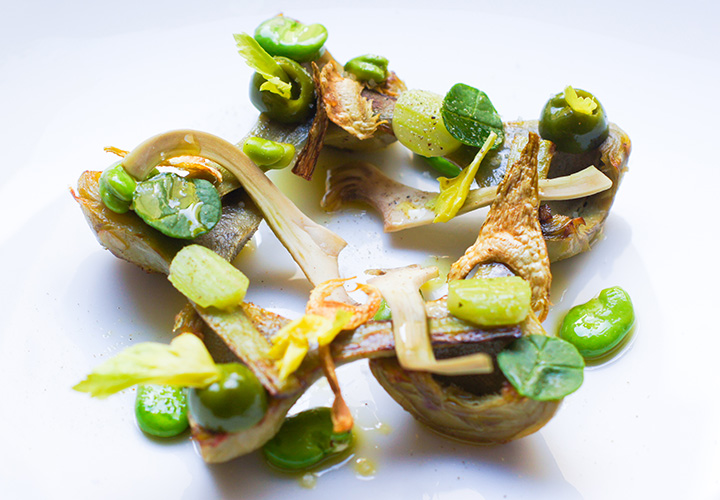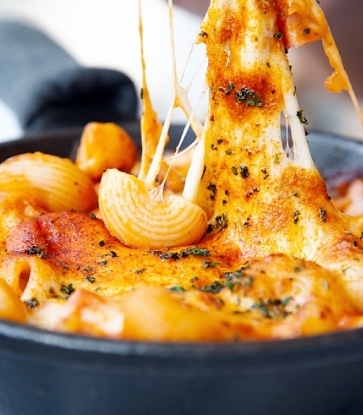How did you begin your journey in the kitchen and what made you discover your passion for cooking?
I started out in the kitchen when I was just 15 years old. My first job was in a family-run fish restaurant near my hometown in Naples, where I cleaned fish for six months. It was nice, but there was a little too much fish for my liking.
After that, I moved around different kitchen stations, learning new things every day and observing the kitchen. To me, the kitchen is a personal space where I have to think about what I am cooking. You have to keep an open mind and look around the kitchen and see what you have to work with when you come up with recipes.

Firstly, we must know the difference between the two – the French kitchen is technical and symmetrical. Square, even. The Italian kitchen is more family-oriented, like home cooking.
For me, going to France was important. I wanted to go to Paris because that is the country of gastronomy. I took my time to see and learn new techniques in Paris, then adapted these techniques to my own cooking. There are some dishes on my menu that are 100 per cent traditional Italian dishes from Naples, but there are also some dishes that have a little influence from France.
But the most important thing is to keep my identity, even if I add a little bit of the French techniques to enhance that identity. I adopt a French approach to plating to make the presentation of my dishes nicer and more elegant.
When you cook Italian dishes traditionally, it usually looks like it comes out of a mother's kitchen, and if you bring them that kind of food into a classy restaurant people will question it, even when the food is good. But at the same time, what I serve in my restaurant is definitely not fusion. When someone comes into the restaurant to get a risotto, they know they will get a risotto. If they order a potato gnocchi, they will get a potato gnocchi.

I’ve never thought about earning a Michelin star for my restaurant. And even after we got it, I don't think about it because everything is still the same as before.
Whether or not your restaurant has a star, you still have to just think about the food. If you start thinking about [cooking for stars], then you start feeling more pressured and it becomes about the stars and not the food. The biggest judges, to me, are the guests. The guests are the ones who are there every day. It is important to be in the kitchen everyday and just make the best food you can make.

The first is pasta. Pasta is so representative of my country and I use it in so many dishes. One more ingredient that I like is the tomato. Find me somebody that doesn't like tomatoes. It's light and suits many people, especially those who like to eat healthy nowadays. And number three is anchovy water. It is made by putting the anchovies that are broken or not good enough to serve in dishes into a press and squeezing out the liquid. It is really salty and I use it a lot for seasoning because it offers a uniquely Italian flavour.
What advice would you offer to aspiring home cooks when it comes to Italian cooking?
When you're cooking pasta, don't fully cook the pasta in the water. You cook it to about 75 per cent in the water, then you take it out and finish the pasta together with its sauce. That way, the texture of the pasta will not be overcooked and the flavour of the sauce can go into the pasta. The pasta will help to thicken the sauce till it is just nice. And one more thing, always use good ingredients. It is difficult to make great food with cheap ingredients because everything is about quality.












